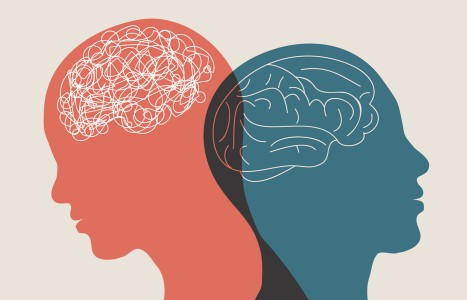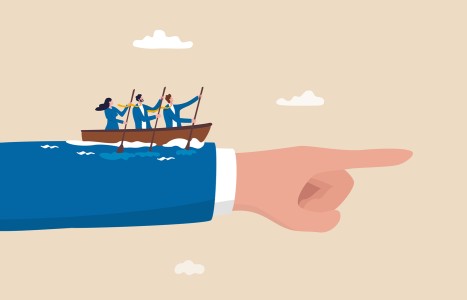Consequences for HIPAA violations can often be quite harsh. If someone has breached the HIPAA privacy regulations – even without any malicious intent, civil penalties are applicable: $100 per violation for unawareness, a minimum of $1,000 for reasonable cause, a minimum of $10,000 if willful neglect is present and then rectified, and finally, a minimum of $50,000 for individuals who act with willful neglect and ignore the issue.
| Digital ExclusiveWake Up and Go to Sleep
I often find myself scanning the press for articles of note that point to issues of great significance in the health realm, which seem to vindicate ideas long held in natural medicine circles but considered outside the mainstream thinking. A recent article about shift work and cancer caught my attention.
Last December, the International Agency for Research on Cancer, a division of the World Health Organization (WHO), classified night-shift work as a "probable" carcinogen. Since 20 percent of the working population in industrialized countries work night shifts, this is no small issue. This is a sea change in attitudes about the impact of circadian rhythms and how their disruption affects human health. Although there has been plenty of evidence in the past that circadian cycles matter, it has been dismissed as a real topic for concern until now.
In 1987, Richard Stevens, an epidemiologist from the University of Connecticut Health Center, published a paper suggesting a link between light at night and breast cancer. He was investigating the fact that in the 1930s, breast cancer rates began to rise dramatically in industrialized societies. He noted that night shifts also became much more popular at that time period due to the increase in nighttime lighting in the early 1900s. Since his paper, there have been many more studies on animals and humans suggesting a strong link between night shifts, disrupted night schedules and cancer, as well as other serious diseases including diabetes. This disruption in the circadian rhythm also applies to crossing time zones. Flight crews and frequent flyers beware.
There are many theories as to what actually is going on here. Disrupting the circadian rhythm affects cellular activities such as cell division and DNA repair. It also affects hormone production such as melatonin. Lack of sleep is another big factor. People who work night shifts do not sleep as many hours per day as those who sleep during the night. Daytime sleep is not equivalent to nighttime sleep. Sleeping with light profoundly affects melatonin production, which has a cascade affect on other hormones, especially insulin. People who do not get enough sleep develop less sensitivity to insulin, causing a condition called insulin resistance. Previous articles of mine in Acupuncture Today have discussed insulin resistance in detail (September 2004, "Fructose: Short, Sweet and Deadly" and January 2007, "Talking About Evolution: Caloric Restriction and Insulin").
Insulin resistance can lead to obesity, hypertension, diabetes, inflammation and atherosclerosis. According to a study of healthy adults who averaged about 5.2 hours of sleep per night over eight consecutive nights, subjects secreted 50 percent more insulin than those who averaged about eight hours of sleep/night. The sleep-deficient group was 40 percent less sensitive to insulin. The study suggests sleep deprivation may play a role in the current epidemic of type 2 diabetes. This past century has seen an increase in sugar consumption in all forms and a decrease in sleep - a double whammy to insulin metabolism.
The National Sleep Foundation discovered that in 1975, the average American slept 7.5 hours, down from nine hours in 1910. Today, the average is about seven hours a night. Chronic sleep deprivation of less than seven hours a night could be considered as great a risk to health as poor diet and chronic stress. We might even consider anything less than nine hours as a detriment to optimal health. These health risks are in addition to the risk to life and limb from falling asleep at the wheel or other accidents that occur from sleep deprivation. Perhaps sleep deprivation is our number-one health issue.
Darkness Matters
We are affected by light much more than we realize. We know that other species, both animal and plant, have the ability to judge day length. The swallows of Capistrano, bees that know when to migrate and trees that blossom at the same time each year all have molecules that can sense light. These molecules will start chemical reactions based on the amount of light they receive. Humans also have such receptors to light.
It is known that blind women have significantly reduced risks for breast cancer compared with sighted women. Melatonin, which is produced at night, promotes estrogen, which influences breast cancer risk. The British Journal of Cancer (March 2001;84:397-9) reported a study which found that totally blind women who had been blind most of their lives had a 49 percent lower risk of breast cancer before age 65 compared with sighted women. Visual impairment did not affect the risk factor; only total blindness. This suggests light/dark patterns and possibly reduced melatonin levels are the mechanisms.
It is a general truth that the further away from our cellular evolution we drift, the more detrimental our experiences will be to our health. For our entire existence as humans, we have followed the sun for our diurnal rhythms. We went to bed when the sun went down and woke up at dawn. The most recent invention of electric light has enabled us to fool our bodies into thinking it is not bedtime. It is still light. We must now overcome this phenomenon, use our superior intelligence and turn the light off. Here are some suggestions to help us and our patients overcome this epidemic of sleep deprivation.
The main theme is to ramp down the level of activity before going to bed. This means all forms of mental and physical stimulation - sex not included. Again, think what we have been doing for the past 600,000 years and try to approach our evolutionary habits. No need to wear animal skins and huddle by an open fire, chewing on sinew. Just try to give your nervous system a break from the deluge of information and stimulation it receives all day long.
- Turn off the computer and the TV for at least one hour before bed.
- Don't eat too much, especially carbohydrates, at least two hours before bed.
- Avoid caffeine after noon.
- Avoid drinking too much fluid so you don't have to urinate needlessly during the night.
- Calm the mind - ideally with some form of meditation, journaling, or the five-minute review of the day in reverse.
- Establish a bedtime ritual, including going to bed at the same time each night and waking at the same time. This includes weekends. No need to be neurotic about it - just try to keep a schedule as much as possible. The earlier the bedtime, the better. More hours sleeping in darkness is ideal. Consider black-out curtains if necessary.
- Get sunlight in the middle of the day. This helps establish the circadian pattern, as well as other health effects of proper amounts of direct sunlight.
Sleep is a difficult issue. Our culture supports and expects continuous productivity and activity, work and play. Downtime is eschewed. This culture of constant productivity has produced a drug called Provigil. Provigil's very name suggesting constant vigilance. The drug manufacturer's description is: "Provigil is a prescription medicine used to improve wakefulness in adults who experience excessive sleepiness (ES) due to one of the following diagnosed sleep problems: obstructive sleep apnea/hypopnea syndrome (OSAHS), shift-work sleep disorder (SWSD) or narcolepsy."
Instead of sleeping to cure "excessive" sleepiness, the therapeutic goal is to stay awake! Perhaps the sleepiness is due to not enough sleep? This drug is ripe to be abused as a lifestyle drug so people can stay awake longer and accomplish more. Instead of caffeine, which has the side effect of making people feel as if they are on speed, Provigil reportedly does not have the sensation amphetamines produce. It may become the drug of choice for long-distance truck drivers, shift workers and anyone else who might want to stay awake longer and sleep less. Instead of being seen as a dangerous substance that will harm millions of people, it will be lauded as a way for us to accomplish more than we already are doing. Please see "Pleasant Dreams" (Acupuncture Today, February 2004) for a more in-depth article on sleep.
As alternative health care providers, we are the ones from whom people need to hear to help inform and counter this burgeoning health crisis. Please remember to consider sleep habits to be a major issue in your practice and give it the attention it deserves.
Sweet dreams!


